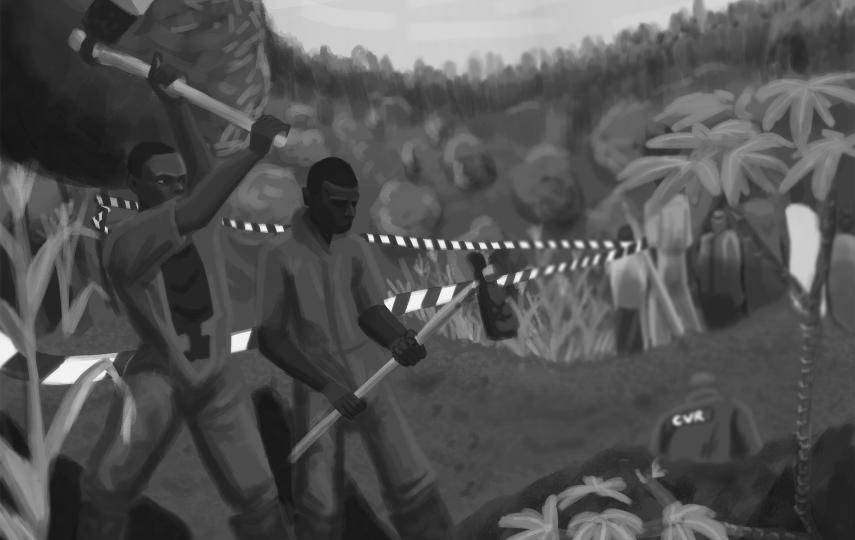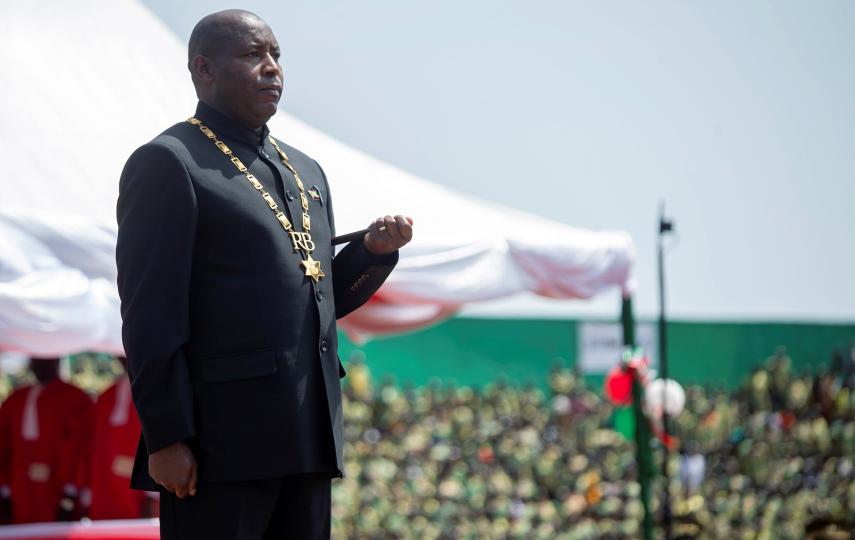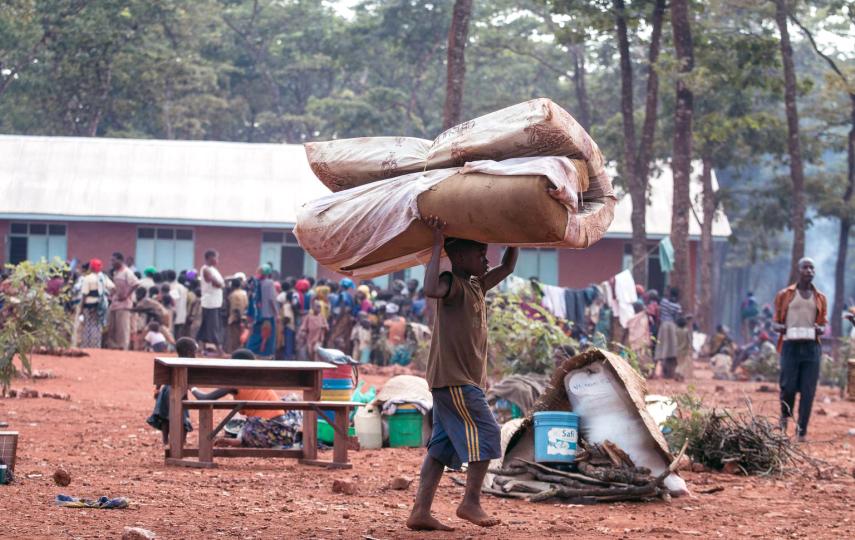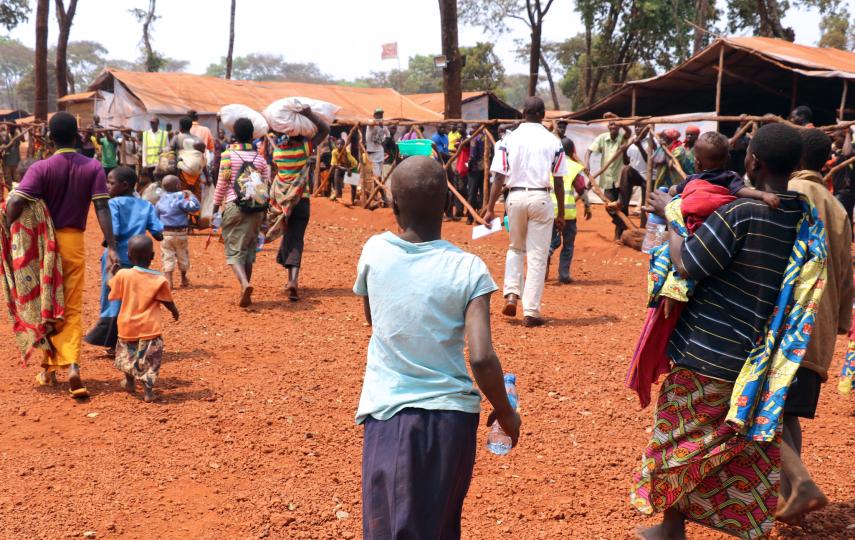Economic problems and enduring human rights issues continue to pose challenges to the thousands of Burundian returnees heading back to the country each year, though many are nonetheless striving to rebuild their lives and prepare for the future.
More than 400,000 Burundians fled to neighbouring countries amid a 2015 political crisis that saw former president Pierre Nkurunziza stand for a disputed third term in power. Around 210,000 have since returned home, including over 20,000 last year.
Some recent arrivals told The New Humanitarian they returned after hearing positive things about the government of Nkurunziza’s successor, Évariste Ndayishimiye, though others said they left because of the conditions in under-resourced refugee camps.
“I came back last year [because] I was having health and financial problems in DR Congo where I fled to,” said Jean Harerimana, who is from western Burundi. “It was not possible to eat there, and my children were becoming regularly sick.”
Many returnees have managed to integrate back into economic and social life, according to civil society groups and recent arrivals interviewed by The New Humanitarian over the past few weeks.
Yet returnees said they get scant help upon arrival, and many have lost their homes and land while in exile. There are barriers to education for children and, according to the UN, 70% of returnee households eat one meal per day.
“My life has become an ordeal, and I find temptations to return to the DRC.”
Security threats from the ruling party’s youth wing have also forced some recent arrivals to flee the country afresh. The youth group, known as the Imbonerakure, often accuses refugees and returnees of being traitors and supporting the political opposition.
A refugee who returned to Burundi from Uganda last September said they were arrested by Imbonerakure members in late October and only released after paying a bribe. The individual said they fled to Kenya shortly after the ordeal.
“They arrested me, tied my hands behind my back, and told me: 'You said you fled Burundi because of the Imbonerakure, but we are still here'," said the refugee, who asked not to be named due to security concerns.
Returning to exile: ‘Some cannot resist the difficulties’
Burundi, a landlocked country of 12 million people, has faced cycles of conflict and displacement stretching back several decades. After prolonged exile, returnees have often struggled to reclaim their land or access farming space for those who are landless.
Tanzania hosts the majority of current refugees, with around 130,000 living in settlements. They are subject to strict encampment and various abuses that have pushed many to return, even as their decisions are often described as “voluntary”.
Current reintegration packages include three months of food rations and a one-off $200 payment from the UN’s refugee agency, UNHCR. Returnees also depend on the communities they are returning to for food and shelter.
Still, many find it hard to find a steady income after years of living abroad. For example, Harerimana, the returnee from western Burundi, said he doesn't currently have a job or enough food.
“My life has become an ordeal, and I find temptations to return to the DRC,” Harerimana told The New Humanitarian, explaining that he lives close to the border between the two countries.
A difficult economic situation has made life harder for returnees like Harerimana. Food insecurity has increased across the country due to soaring prices, while climate shocks – including delayed rains followed by flooding – have also made matters worse.
Burundi has a largely agricultural economy and its main cash crop is coffee. Smallholder farmers are grossly underpaid and profits are largely captured by powerful companies in the Global North.
Godelieve Manirakiza, a legal representative from the Association of Repatriated Women in Burundi, said she was aware of other returnees who have also recently left the country.
"Among those we help, there are of course some who cannot resist the difficulties and… decide to return to exile believing that they can find better things [abroad]," Manirakiza told The New Humanitarian.
‘Here I am free’
Others returnees said they were able to reintegrate more successfully. Denise Ndayisaba, who made it back to Burundi in 2020, said UNHCR’s cash assistance was not enough to cover all her family’s needs but still helped them “start life” again.
“In Tanzania, I had no rights. I did not leave the camp for fear of being arrested by the Tanzanian security forces.”
Ndayisaba, who is from eastern Burundi and is planning to run as a candidate for local elections in 2025, said the situation for returnees is far better than in neighbouring Tanzania.
“In Tanzania, I had no rights. I did not leave the camp for fear of being arrested by the Tanzanian security forces,” Ndayisaba said. “Here, I am free, and I call on exiled citizens to come back as I did.”
Another returnee, who asked not to be named, said they used their reintegration assistance as well as support from friends and family to start a business at a market in Bujumbura, the country’s economic capital.
The market vendor, who sells beans and corn, said they have forged strong bonds with other local merchants since returning. For example, they said they recently attended the burial ceremony of another trader’s deceased father.
“It is a sign that [they] have reintegrated into society because [they] made business and friends [here],” a trader at a nearby stall, who also requested anonymity, told The New Humanitarian.
A ‘false promise of a safe return home’
The market vendor said they returned from Tanzania in 2020 following a speech by Ndayishimiye in which he pledged various political reforms and to fight against corruption.
Donors have been similarly swayed by Ndayishimiye’s reform pledges. Last year, the European Union lifted restrictions on direct financial aid, having frozen it in 2016 in response to abuses by Nkurunziza’s government.
Human rights researchers also agree that security has improved, citing fewer political killings and abuses by Imbonerakure members, and the removal of ruling party hardliners such as former prime minister Alain-Guillaume Bunyoni who was arrested in April.
Yet the ruling CNDD-FDD retains a monopoly on power and rights abuses do still occur, including against returnees, according to testimonies gathered by The New Humanitarian.
Another Burundian, who returned home from a refugee settlement in southwestern Uganda last October, said Imbonerakure members labelled returnees in their area "Ibipinga", which means opponents of the ruling party, and surveilled their homes.
The refugee, who asked not to be named and has since returned to Uganda, said returnees were made to pay higher prices in the local market. They said members of the CNDD-FDD also coerced the new arrivals into contributing to the party.
A Burundian journalist living in a camp in Uganda argued that many refugees who choose to leave settlements and return home “lack sufficient knowledge of the situation”.
“These individuals have endured harsh and inhospitable conditions in Ugandan refugee camps… and may be desperate for the false promise of a safe return home,” said the journalist, who also asked to remain anonymous due to security fears.
The journalist said UNHCR, which has called for more funding for Burundian refugee and returnee programmes, should not encourage further returns without them “fully understanding the risks involved”.
Manirakiza, of the Association of Repatriated Women in Burundi, said the longer refugees remain in exile, the harder it is for them to return. “Fear settles in the hearts, especially for those who do not find it urgent to return,” she said.
Additional reporting by Philip Kleinfeld, who also edited the piece.





